
Copyright © 2005 the Brewery History Society
|
Journal Home > Archive > Issue Contents > Brew. Hist., 119, pp. 10-23 |
The Brewing Connection in the Oxford Dictionary of National Biography |
by Ray Anderson |
The first volume of the Dictionary of National Biography (DNB) was issued in 1895, and the first full set of what became the standard biographical record of the lives of men and women important in British life was completed by 1901. Throughout the 20th century the work was updated, with new volumes added periodically covering people who had died since 1900. The DNB became an indispensable tool for researchers. But none of the original articles, or those added since, were ever revised or rewritten to take account of the latest discoveries in historical research and it was beginning to show its age. The 23rd September 2004 saw the launch of an entirely new edition of what is now called the Oxford Dictionary of National Biography (Oxford DNB) covering people who had died up to 31st December 2000. Every entry in the original has been rewritten and 16,315 new lives have been added by a team of some 10,000 specialists over a period of 12 years, bringing the total number of lives to 54,922. The whole is published in 60 volumes from Aaron to Zuylestein, comprising 60,000 pages with 10,000 portrait illustrations. If you fancy buying it then it will set you back £7,500 and take up 12 feet of shelf space. Perhaps more practically for the individual the work is available on-line for £195 per annum. See www.oxforddnb.com for details.
The net of the original DNB was always spread widely and its subjects were not confined to the distinguished and worthy, the 'great and the good'. Royalty, politicians, lawyers, diplomats, soldiers, church leaders, writers, artists etc of course got in, but so too did crooks and courtesans, and even the odd brewer. The Oxford DNB continues this coverage and extends it with more attention to scientists and technologists, industrialists, pop musicians, sportspeople, the eccentric and the infamous. Women also get more attention, but still only make up about 10% of the entries compared with 6% in the original. One great advantage of the new edition is that the on-line version is fully searchable. You can of course search by name, but additionally you can search for people by date, religious affiliation, field of interest/occupation, place of birth, education, residence, death, burial and more, throughout the entire text of some 62.5 million words. Enter 'brewery' for a whole text search for example and you are returned 254 results. Arranging these lives alphabetically (rather than by date of birth or death of the subject which are also options) takes us from, ‘Abbey, John Roland (1894-1969), book collector’ to ‘Younger, Sir William McEwan, of Fountainbridge, baronet (1905-1992), brewer and political activist’. That the word 'brewery' should appear in the biography of the latter is no surprise, but perhaps its appearance in an entry on a book collector is not so obvious. Helpfully the search return gives a short extract from Mr Abbey's biography showing the context in which the word brewery appears and obviating the immediate need to visit the full article. It turns out that John Abbey's day job was as a director and later chairman of the Kemp Town brewery, Brighton. So who else with connections to brewing has done enough, one way or the other, to gain a place in this unique source of reference?
Many of those to merit entries in the dictionary, at least partly by virtue of being brewers, have names which are eponymous with their breweries, others are there as professional managers; a high proportion in both categories also had political careers. They are perhaps most conveniently considered by the geographical location of their breweries
Heading the list in terms of numbers of entries amongst UK brewers is the Guinness family, which is only proper, for as the dictionary has it: ‘No other family or firm, except perhaps the Rothschilds, better illustrates the place of the plutocracy of new money in late Victorian and Edwardian Britain than the Guinnesses’. From, Guinness, Arthur (1768-1855), son of the founder of the brewery, and according to the dictionary ‘the main architect of the firm’, to Guinness, (Arthur Francis) Benjamin, third earl of Iveagh (1937-1992), the great-greatgreat- great-grandson of the founder, who became chairman of Guinness in 1962 but ‘lacked the qualities necessary for shouldering such a burden’ and was the last member of the family to be associated with a company, there are six brewing 'Lee' Guinnesses in the Oxford DNB. The original Arthur Guinness (1725-1803), does not get a separate entry but an outline of his life is to be found in the piece on his namesake son. The intermediate names are: Guinness, Sir Benjamin Lee, first baronet (1798-1868), son of the second Arthur, he was ‘astute and competent’ and ‘saw the firm's output burgeon … so that on his death he was reckoned to be Ireland's richest inhabitant;’ Guinness, Arthur Edward, Baron Ardilaun (1840-1915), who succeeded as second baronet upon the death of his father and became the head of the brewery, but ‘lacked interest in industrial management … and took advantage of a new deeds drawn up in 1876 to retire in favour of his brother.’ That brother was, Guinness, Edward Cecil, first earl of Iveagh (1847-1927), of whom it is said ‘very few men have enjoyed greater success … possessing a capacity for quick decision, a flair for business and an intuitive under-standing of men's characters … he was obsessive about detail and little escaped his attention … he combined immense business skills and a keen interest in social welfare with a vigorous social life;’ Guinness, Rupert Edward Cecil Lee, second earl of Iveagh (1874-1967), the eldest of the three sons of Edward Cecil, he ‘suffered from serious dyslexia’ and had ‘an inability to express himself orally or on paper,’ nonetheless ‘as well as being chairman of the brewery, an active member of the House of Lords, and a prominent philanthropist, Rupert was a leading agricultural reformer.’ As a businessman he ‘was largely content to devolve decisions to his executive directors and managers’ although he ‘was prominent in mounting the best-known advertising campaign of the 1930s … “Guinness is good for you.” He possibly coined the phrase, and his was perhaps the smiling face which appeared in the Guinness glass.’ Another entry which comes under the Guinness umbrella is that for Beaver, Sir Hugh Eyre Campbell (1890-1967), who as a partner in a firm of engineers was involved in ‘the design and construction of the new Guinness brewery at Park Royal’ and after the war became managing director of Guinness where he ‘introduced modern management methods and a policy of diversification,’ but will also be remembered for the introduction of Harp lager and the Guinness Book of Records.
|
|
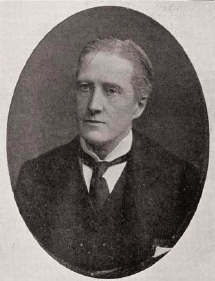 |
|
|
A rather different type of Irishman to the Guinnesses was Sweetman, John (1752-1826), ‘Irish nationalist and brewer.’ Sweetman inherited his father's brewery, his mother was the daughter of a brewer and he in turn married the daughter of a brewer. He was ‘involved in the campaign for Catholic relief’ and ‘during the later 1790s became a high ranking, if often shadowy, member of the radical and militant United Irishmen … he was arrested at his brewery on Francis Street on 12 March 1798 … Sweetman and the other state prisoners … agreed to provide information in return for their lives and voluntary exile.’ After three years in Scotland he was ‘set at liberty in the Netherlands in 1802.’
The metropolitan brewers are heavily represented in the dictionary. The senior member is Sir John Parsons (d.1717), who ‘prospered as proprietor of the Red Lion brewery in East Smithfield, London’ and who appears in the entry on his son Parsons, Humphrey (c.1676-1741) to whom he left the brewery which continued to grow, ‘making it one of the four largest breweries in the capital in the second quarter of the eighteenth century.’ Both Parsons were MPs and became lord mayors of London, but Humphrey ‘was much less cautious than his father in avowing his tory commitments and Jacobite sympathies.’
|
|
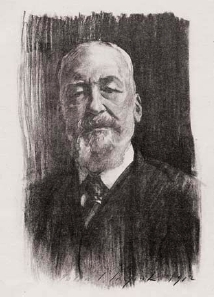 |
|
|
Truman, Sir Benjamin (1699/1700- 1780), was also the son of a brewer, but Benjamin was ‘first and foremost, an entrepreneur and industrialist’ with little interest in politics, and built his firm into ‘one of six “capital houses” in London.’ He was ‘knighted in 1760, on the accession of George III, in recognition of his standing in the London business community and for large loans to the crown.’ There is something of a plethora of brewing Buxtons in the dictionary, although the liberal Quaker family are there primarily for their political and philanthropic activities rather than because they were associated with a brewery viz: Buxton, Sir Thomas Fowell, first baronet (1786- 1845), an MP and anti-slavery campaigner who in 1808 joined Truman, Hanbury & Co., where his maternal uncle, Sampson Hanbury, was a partner; Sir Edward North Buxton (1812-1858), the second baronet, and also a partner in the brewery does not get a separate entry but three others do i.e. his brother Buxton, Charles (1822-1871), who became a partner on leaving university, and two of his sons Buxton, Sir (Thomas) Fowell, third baronet (1837-1915), and Buxton, Edward North (1840-1924) who were also partners in the brewery. The latter became chairman of the board of directors in 1897 but is ‘best remembered for his part in preserving London forests for public recreation.’ In contrast to all these Buxtons, the only Hanburys in the dictionary are Hanbury, John (1700-1758), merchant, and his son Osgood Hanbury (1731-1784), who are of the brewing branch, but lived before the family became involved in brewing. Osgood was the father of Sampson Hanbury.
|
|
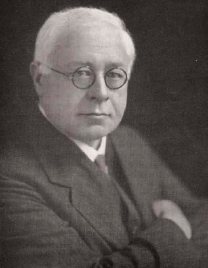 |
|
|
There are entries on Whitbread, Samuel (1720-1796), noted to be ‘a forbidding, deeply devout man,’ the founder of a brewery which became the biggest in London (and therefore the world) in his lifetime, and his son Whitbread, Samuel (1764-1815), who caused ‘the dissipation of the great fortune ... as he pursued a costly social and parliamentary career, neglecting the brewery which had been the source of the family's wealth and prestige.’ Nevile, Sir Sydney Oswald (1873-1969), was head brewer of Brandon's Putney Brewery at the age of twenty-two who became ‘a nationally known figure in the trade’ and joined Whitbread as a managing director in 1919. His influence continued to be felt across the industry for another fifty years and he was ‘a key figure in Whitbread's emergence as a national brewer.’ By any measure Nevile was one of the great characters who ‘combined a disarming conviviality and wit with tremendous energy and a shrewd business brain.’
The entry for Thrale, Henry (1728-1781), contains an outline of the life of his father Ralph Thrale (d. 1758), ‘a wealthy brewer’ whose ‘lavish social spending caused some attrition to the business, which was increased under his son.’ Henry Thrale's ‘increasingly reckless speculation’ in his fruitless attempts to overtake Whitbread and Calvert led to near ruin and Thrale ‘was submerged in a black melancholy, recurrent bouts of which were exacerbated by venereal disease, and only alleviated by hunting parties, extravagance, a suicidal over-indulgence at the table, and flirtation with the beautiful scholar of Greek, Miss Sophia Streatfeild.’ Henry Thrale's wife Piozzi [née Salusbury; other married name Thrale], Hester Lynch (1741-1821), ‘a fashionable, literary lady with good family connections’ and their eldest daughter, Elphinstone [née Thrale], Hester Maria, Viscountess Keith (1764-1857), also merit entries in the dictionary, as of course does, Johnson, Samuel (1709- 1784), ‘author and lexicographer,’ a friend of the family from 1765. Barclay, David (1729-1809), ‘banker and brewer’ and Perkins, Henry (bap. 1777, d. 1855), ‘book collector and brewer’ both get entries in the dictionary. The entry on Henry Perkins notes that his father, John Perkins, ‘was the chief clerk of the Anchor Brewery in Southwark, which he was credited with having saved from demolition during the Gordon riots of 1780 by a judicious offer of porter to an angry mob. The following year, in partnership with his wife's Quaker relatives David Barclay, Robert Barclay, and Sylvanus Bevan, he bought the business for some £135,000. It was of this sale that Dr Johnson commented, “we are not here to sell a parcel of boilers and vats, but the potentiality of growing rich beyond the dreams of avarice.”’
Combe, Harvey Christian (1752-1818), ‘had a reputation as a gambler and socialite, and as an enthusiast for pugilism’ and in 1787 acquired a major share in the Gyfford's Wood Yard brewery which was to blossom through various partnerships to make his fortune. ‘His annual entertainment of royalty and his aristocratic whig friends at the brewery for traditional beefsteaks, before a more extended collation at his house in Great Russell Street, became legendary.’ One of the greatest professional brewer-businessmen to get into the dictionary is Bonsor, Sir (Henry) Cosmo, baronet (1848-1929), first chairman of Watney, Combe, Reid, & Co., a post he held for 30 years seeing the vastly over capitalised company through difficult times before World War I to relative prosperity in the 1920s. ‘Frank, open, likeable, and a good talker, Bonsor had an excellent grasp of financial affairs, and was supported by solid political connections.’ He is complemented by another staunch Watney's champion, Combe, Simon Harvey (1903-1965), ‘an archetypal representative of British family capitalism.’ A director of Watney, Combe, Reid & Co. from the age of 23, under Combe's chairmanship Watney Mann fought off the unwelcome attentions of Charles Clore in 1959. In his confrontation, Combe showed himself, as the dictionary puts it, to be ‘no brewing lamb for the slaughter.’
An atypical London brewer was Stansfeld, Sir James (1820-1898), ‘politician and social reformer.’ Stansfield, ‘one of the early graduates of the University of London (BA, 1840) ... called to the bar (Inner Temple) in 1849 but never practised. He needed a source of regular income … joined with his brotherin- law Sidney Hawkes in operating the Swan Brewery, Fulham. He took over completely in 1853 and ran the brewery successfully for some years. This gave him the financial independence to adopt radical stances on social issues in later years. He was the exception among radicals in refusing to come out against the drink trade and was dismissed by some temperance activists as the “Unitarian brewer.”’ He held office in two of Gladstone's cabinets but his inclusion in the dictionary rests on his championing of unpopular causes notably ‘the cause of Italian freedom and unity’ and ‘the repeal of the Contagious Diseases Acts … which subjected women in seaports and garrison towns suspected of being prostitutes to compulsory examination.’
A member of one other famous London brewing family appears in the dictionary, but not because he was a brewer, quite the opposite in fact. This is Charrington, Frederick Nicholas (1850-1936), who turned is back on the family firm ‘to take up the cause of Christianity and temperance in the district surrounding the brewery in the East End.’ The dictionary notes that ‘At times he allowed his fervent enthusiasm to carry him to fantastic lengths. On 18 May 1915, when the House of Commons was discussing the report of a select committee on pensions, Charrington, wearing evening dress, an overcoat, and a silk hat, dashed into the house from the members' lobby, seized the mace from the speaker's table, and began to protest against the drinking bar inside the lobby being used by members. He was arrested, but released after two hours' detention.’
Burton-on-Trent has a clutch of famous brewers in the dictionary viz. Worthington, William (1723-1800), founder of the brewery and ‘as much merchant as brewer’ merits a short entry as does Allsopp, Henry, first Baron Hindlip (1811-1887), son of Samuel, Henry was ‘the key figure in Allsopp's development … by any reckoning a spectacularly successful Victorian firm before the mid-1880s.’ Of the company's fall from grace following its floatation on the stock market the dictionary tells us that Henry ‘an old and honourable man, was immensely hurt by accusations in the financial press that his family had sold to a gullible public a vastly overpriced pup on a false prospectus. Within six weeks of the flotation he was dead.’ This assertion is something of an exaggeration; accusations of a false prospectus did not to appear in the press until after Henry's death. Henry went to his grave unaware of this blot on the family's escutcheon. A business manager who experienced the full consequences of Allsopp's subsequent slide was Taylor, James Frater (1873-1960), of whom the dictionary says: ‘As management expert and Bank of England nominee, Taylor played a key role in industrial reorganization in Britain during the difficult inter-war years.’ This is in spite of, or perhaps inspired by, spending the years from 1891 to 1907 with Samuel Allsopp & Sons Ltd., reaching board level in his final year with the company.
The lion's share of the Burton entries goes to those who ran its most famous brewery. Bass, Michael Thomas (1799- 1884), grandson of William the founder, who steered his company to become: ‘Britain's biggest brewery and best-known firm ... an achievement, shared with two generations of his highly competent Ratcliff and Gretton partners, ... based on an extraordinary vision and superb management skills.’ Michael Thomas's son, Bass, Michael Arthur, first Baron Burton (1837-1909), is less highly praised but ‘was a capable and loyal deputy until his father's death … then for the next quarter of a century, in more difficult times for brewers, he kept the firm on course.’
|
|
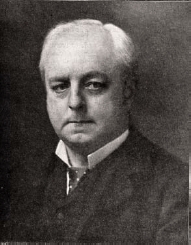 |
|
|
There are some splendidly candid remarks about Gretton, John, first Baron Gretton (1867-1947), chairman of Bass, Ratcliffe & Gretton between 1909 and 1945 thus: ‘Gretton was an archetype of the reactionary Tory brewer ... a gloomy, stubborn, and suspicious politician but a sharp-eared gossip.’ Gretton was a Conservative MP for forty-eight years and quotations from contemporaries add to the picture: ‘One of the besthearted fellows one has ever met, kind, generous, self-effacing: ugly as possible, blinking at one through gold-rimmed spectacles: inarticulate, for it is almost impossible to hear a word he says, and his handwriting is simply deplorable. He has all the noble qualities of the mole;’ and in his later years ‘in the house he collapses into a heap snoring so loud that he almost disturbs a debate. It is odd that he has had so much influence in politics for he has no parliamentary ability - and is not even an average speaker: presumably he is a clever intriguer. I like him.’ In contrast to the piece on Lord Gretton, that on Manners, Arthur (1879-1968), his contemporary on the Bass board, lacks colour but gives a straightforward outline of Manners' business career. Arthur Manners had followed his father, William Posnette Manners (1846- 1915), whose rise from office boy to chairman is briefly outlined, as boss of Worthingtons. Arthur was, as the dictionary puts it, ‘the architect of the merger in 1927 of Worthingtons with Bass’ who ‘obtained a dominant position in both companies and enhanced his own financial status.’ ‘More than a match’ for Lord Gretton, Manners engineered the colonel's resignation as chairman in 1945 and took the job himself. ‘By the late 1940s the Manners family provided no fewer than four of the company's six directors’ notes the dictionary. ‘Falling sales … lack of rationalisation … concern among institutional investors’ all led to Manners retirement in 1953. Apart from noting that Arthur was ‘autocratic in style’ the piece has nothing to say directly on him as a man, which is something of an opportunity missed if other reports of the deviousness of Manners, father and son, are to be believed.
|
|
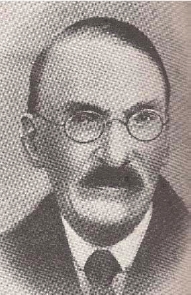 |
|
|
Provincial brewers also accumulate a respectable number of entries. The north west is well represented viz. Houlding, John (1833-1902), a brewer in Liverpool from 1856 who went into business on his own account in 1871, ‘a freemason, Orangeman, churchman, and philanthropist … it was as the benefactor of the Everton Football Club that he became best known.’ Later he fell out with Everton FC but, ‘undaunted, Houlding created a new club from scratch and called it Liverpool.’ Walker, Sir Andrew Barclay, first baronet (1824- 1893), sometime sole proprietor, and later chairman of the company started by his father Peter Walker, he was also a considerable coal-owner in Ayrshire and south Wales, and ‘contributed … large sums to charity and art and literature in Liverpool throughout his life,’ including building the Walker Art Gallery. In the entry for Greenall, Peter (1796-1845), there are also outlines of the lives of his grandfather Thomas Greenall (1733-1805), founder of the brewery, and his father Edward Greenall (1758-1835). The lionization of Peter in St Helens as ‘the man who had so dominated the town's early growth’ is balanced by the observation that: ‘His great reputation, however, was entirely local: the very brief notice in The Times merely drew attention to a tory vacancy in the Commons.’ Salvidge, Sir Archibald Tutton James (1863-1928), although long connected with the drinks trade, ‘starting as a publican and rising to be managing director of Bent's brewery … when Salvidge was knighted in 1916 it was in recognition of his assistance in smoothing the acceptance of wartime licensing restrictions,’ his entry in the dictionary is due to his role as a ‘political organizer’. As the dictionary has it: ‘On the back of popular protestantism Salvidge attained the ascendancy over Liverpool Con-servatism … history was ransacked for parallels to describe this democratic dictator. A cross between Cardinal Richelieu and Field Marshal Lord Kitchener was proposed, but Lloyd George provided the best analogy: “the nearest to a Tammany boss that we have in this country.”’
|
|
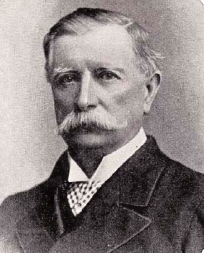 |
|
|
The Yorkshire breweries have only one representative in the dictionary, Lawrence, Harry Lawrence Bradfer (1887-1965), and he is billed as an ‘antiquary and collector of manuscripts,’ with only a passing reference to his position as ‘managing director of Hammonds brewery’ from 1935. One may perhaps have expected more on Bradfer- Lawrence's brewing career considering his leading part in the consolidation of the brewing industry as an early exponent of the strategy of growth by takeover, which reached its apotheosis in his collaboration with the greatest pro-ponent of that strategy, Edward Plunkett Taylor, when chairman of Northern/United Breweries after 1960.
|
|
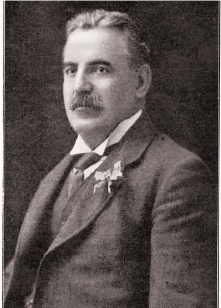 |
|
|
The midlands has: Butler, Sir William Waters, first baronet (1866-1939) chairman of Mitchells and Butlers for 25 years, a great reforming influence in the industry and one if its most prominent as well as one of its most successful practitioners between the wars, ‘Butler was perceived to be one of brewing's staunchest and most able champions … a genial, kindly man; he loved orchids, and not only attended business meetings with one in his buttonhole, but frequently took prize blooms to distribute at public functions.’ Flower, Edward Fordham (1805-1883) who ‘upon the death of his father in 1829 … inherited a modest sum from the proceeds of his estate, which he invested in the building of a brewery in Stratford in 1831.’ Flower, Charles Edward (1830- 1892) who ‘joined his father as a partner in the brewery in 1852 but will be remembered as the founder of the Shakespeare Memorial Theatre at Stratford upon Avon, which later became the base of the Royal Shakespeare Company.’
From the south midlands we have a family entry (an innovation in the Oxford DNB) for the brewing Morrels. Featured are: Mark Morrell (1771-1843), and James Morrell (bap. 1773, d. 1855), who established the business, James' son, also James Morrell (1810-1863), ‘a portly figure, fond of lavish entertainment, and with many friends in county society’ who appointed a manager to run the business and whose early death resulted in trustees being in charge for half a century. James Herbert [Jimmy] Morrell (1882-1965), joined the company as manager in 1926 and ‘until the mid-1930s combined his brewery duties with a position as university demonstrator in physics’ before in 1943 converting the private firm to a limited company, Morrells Brewery Ltd, with himself as chairman. There is also an entry for, Gardner, Sir William Tynte Agg- (1846-1928), whom the dictionary describes as ‘a short, bald man with a toothy smile, sagging moustaches, and ugly features, but gentle, unassuming manners.’ He was sole owner and then chairman of what became the Cheltenham Original Brewery Company Ltd. A long-serving Tory MP, ‘although regular in attendance … seldom intervened in the chamber’ and in business ‘not a keen-minded entrepreneur,’ his company was only saved ‘by the appointment of a professional brewer’ in 1905. With this record, and the foregoing description of his appearance, Agg-Gardner comes across as something of a model for Peter Cook's, Sir Arthur Strebe Greebling.
From East Anglia there is a family entry covering the brewing Greenes. The family entered the trade through Benjamin Greene (1780-1860) who in the late 1790s served an apprenticeship with Whitbread and settled in Bury St Edmunds in 1801 as a brewer and subsequently vehemently pro-slavery plantation owner in the West Indies. Edward Greene (1815-1891), Benjamin's third son, ‘completely transformed the business between 1840 and 1870’ and in 1887 ‘merged his brewery with that of his pushy neighbour, Frederick William King.’ Edward's only son Sir (Edward) Walter Greene, first baronet (1842-1920), was given a partnership in his father's firm just before he became of age. The dictionary notes that: ‘Walter had three great (and expensive) interests in life: hunting, … driving carriages four-in-hand, and his succession of ever bigger steam yachts. The running of the brewery was, in effect, left to his steely, independent, highly competent first cousin, E. W. Lake (1852- 1922).’ With Sir Edward the brewing Greenes rather peter out, but there is due mention of the expanded Greene clan, including Greene, Sir Hugh Carleton (1910-1987), ‘journalist and broadcaster’ who, ‘on the strength of his high profile at the BBC, became a director in 1964 (he was chairman, 1971-8).’ Another famous East Anglian brewing family name to get into the dictionary is Cobbold, Elizabeth (1764-1824), ‘poet and artist in cut paper’ who lived at Cliff House beside the brewery but was only a Cobbold by marriage and seems to have had her hands full: ‘Her second husband, John Cobbold (1746-1835), was a prosperous Ipswich brewer and banker, a pillar of the established church and the blue party … . Elizabeth was the ideal person to take on his fifteen children aged under seventeen from a first marriage and they had six more sons and a daughter over the next ten years.’ The fifth child of the latter brood, Cobbold, Richard (1797-1877), ‘novelist and Church of England clergyman,’ also merits an entry in the dictionary, but he seems to have had nothing to do with the brewery.
|
|
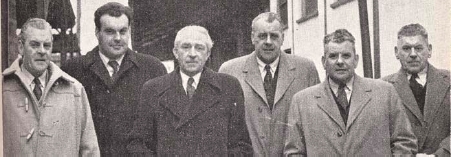 |
|
|
The south west is represented by the Showerings. Showering, Francis Edwin (1912-1995), whose family had been brewing beer and making cider in Shepton Mallet since the early nineteenth century but whose claim to fame came when he ‘in 1946 developed a lowalcohol sparkling drink made from pear juice, which was given the name Babycham’ turning himself and his three brothers into millionaires. Francis Showering had the reputation during his lifetime as a rather spiky man, but this aspect of his character is not explored in what is a particularly bland entry. Showering, Sir Keith Stanley (1930-1982), nephew of Francis and chief executive of Allied Breweries/Allied Lyons from 1975 until his death, at which time the conglomerate was ‘the tenth-largest British company,’ also squeezes in.
Scottish brewers get a good airing in the dictionary. Heading the list is McEwan, William (1827-1913), described as ‘a plain, blunt man’ but ‘undoubtedly one of the most successful brewers of his generation … a shrewd, hard headed, hard working businessman…one of the merchant princes of Scotland.’ The piece on McEwan also has a mention of his uncle John Jeffrey with whom he trained before in 1856 ‘he established his own business at the Fountain brewery,’ and of McEwan's nephew William Younger who joined him as an apprentice in 1874, and who ‘played an increasingly important role … becoming managing director of the firm on its incorporation in 1889 with McEwan … devoting himself increasingly to politics.’ McEwan's ‘presumptive only child,’ Greville [née Anderson], Dame Margaret Helen (1863-1942), ‘society hostess,’ is also in the dictionary in her own right and has her own place in brewing history having on her death left all her ordinary shares in the brewery to Younger, Sir William McEwan, of Fountainbridge, baronet (1905-1992), who would go on to become the first chairman of Scottish & Newcastle Breweries. The dictionary succinctly explains the background of this splendidly named and unconventional ‘brewer and political activist,’ thus: ‘His father was the brother of George Younger, first Viscount Younger, and of Robert Younger, Baron Blanesburgh [a judge]; his paternal grandmother, Janet, née McEwan, was the eldest sister of William McEwan, Gladstonian Liberal MP for Edinburgh and the founder of McEwan's Brewery. He was thus brought up with a background of brewing and politics… .’ Younger (known as Bill) joined McEwans when he left Oxford shortly before the firm merged with fellow Edinburgh brewers William Younger (not a relative) as Scottish Brewers Ltd. He had good war and was: ‘Known by his men as Colonel Screwtop, the main supplier of beer to the army being McEwan Youngers.’ The dictionary contains the following intriguing passage on Bill Younger's unconventional approach to business as managing director of Scottish Brewers: ‘… when the main rival to Scottish Brewers Ltd in Scotland was offered to him he refused the offer on the basis that the resultant combine would so dominate the Scottish brewing scene as to extinguish competition and blunt the competitive edge of his company. His business philosophy was at variance with that of the rest of the brewing industry and he took no part in the councils of the various trade associations.’ Bill Younger's uncle, Younger, George, first viscount of Leckie (1851-1929), who ‘at the age of sixteen succeeded his father as head of the family brewing business, George Younger & Son, established by his great-great-grandfather’ merits a separate entry. The dictionary has little else to say of his brewing activities but has much on his career as a Unionist MP where he ‘achieved historical significance … not as a parliamentarian but as a party organizer and adviser to successive party leaders,’ weathering the jibe by Lord Birkenhead that his influence over the Tory leader Bonar Law was such that, ‘he was the cabin boy who had taken over the ship’. The only Edinburgh Younger to get into the dictionary is Younger, Henry Johnson (1832-1913), who in 1861, ‘became a junior partner to his elder brother, William Younger IV’ in the long established family brewing firm and became its first chairman when it was floated as a public company. The dictionary notes that Younger's ‘career might be compared with that of his near contemporary, the apparently more dynamic William McEwan. The latter entered politics and hence had a higher public profile, whereas Younger confined himself mainly to his business and family.’ The only other Scottish brewers to make it into the dictionary are Deuchar, James (1849-1927), who rose from publican to millionaire on the back of brewing and retailing Scottish beer on Tyneside and his elder brother Robert who gets a passing mention in the same entry.
|
|
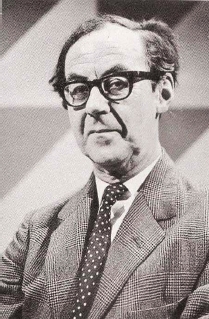 |
|
|
For reasons of copyright the illustrations reproduced here are not those which appear in the Oxford DNB. Instead the following are acknowledged and thanked for permission to reproduce those images still in copyright: The British Beer and Pub Association for Michael Arthur Bass, William Waters Butler, Edward North Buxton, Simon H Combe, William Agg-Gardner, Edward Cecil Guinness and Sydney Nevile, taken from the Brewing Trade Review; the Brewers' Guardian for the Showerings; Brewing & Distilling International for John Gretton taken from the Brewers' Journal; Scottish & Newcastle Breweries for William McEwan Younger. The image of Henry Allsopp comes from the Red Hand and that of Andrew Barclay Walker from ‘Walker's Warrington Ales;’ both are believed to be out of copyright.
In the second and concluding part of this review of people in the Oxford DNB with brewing connections, which will appear in the next edition of the journal, we look at maltsters, scientists and technologists, and at those with more tenuous links to brewing including actors, sportsmen, a hangman, and an ‘adventuress.’We will also consider those who might have been expected to get in, but didn't.